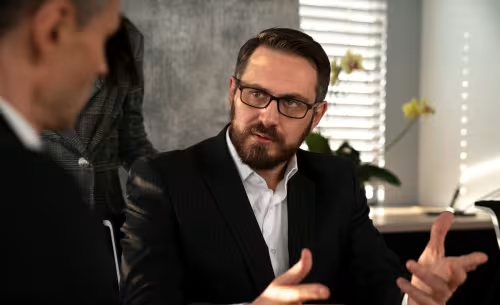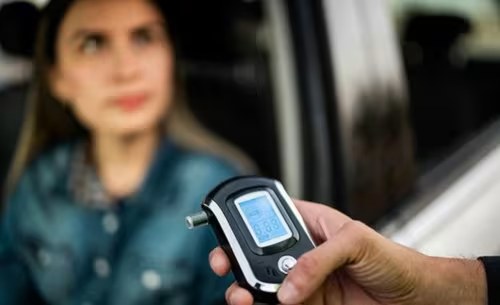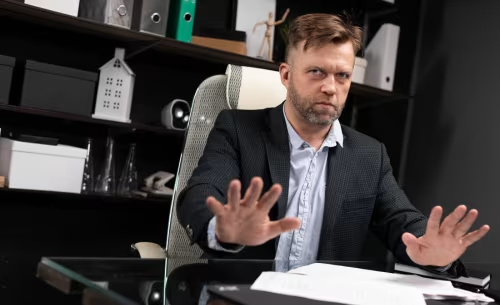Disclaimer: This guest post was written by a third party and is for informational purposes only. It does not constitute legal advice or create an attorney-client relationship with The Meehan Law Firm. For legal advice, please contact our office.


In the criminal justice system, few questions are asked more frequently-or misunderstood more deeply-than this: How can a defense attorney represent someone they know or believe to be guilty? The thought makes many people uncomfortable or even angry. However, the answer is not found in morality, but in constitutional law’s foundational principles, ethical obligations, and the adversarial nature of criminal proceedings.
Criminal defense attorneys at The Meehan Law Firm routinely confront this question. Their response is in line with the ideals set out in the U.S. Constitution and California state law. These values protect both the guilty and the innocent, and by extension, the integrity of the legal system.
The Role of a Criminal Defense Attorney in California
The purpose of criminal defense is not to assert a client’s innocence, nor to condone illegal behavior. Instead, it is to ensure that the prosecution meets its burden of proof, to protect the rights of the accused, and to make sure that due process is followed.
Defense attorneys are a barrier to overreach, bias, and error. A client is entitled, under the California Constitution, Article I, Section15 and the U.S. Constitution’s Sixth Amendment, to a fair trial, competent legal representation, and the presumption of innocence until proven guilty beyond a reasonable doubt, even if they have committed an illegal act.
Without a defense attorney, the prosecution (or the police) could decide who is and who is not guilty, and how to punish them; even the innocent would not be safe. The authorities would have no limits on what they could do to arrest someone. They could violate one’s constitutional rights and even turn to illegal activity to find a suspect guilty. The government could also target those who disagree with them. The defense attorney protects their clients from overreach such as that.
Judge Blackstone said, “It is better that ten guilty persons escape than that one innocent suffer.” This would not be possible without a defense attorney fighting for all eleven of them.
Factual Guilt vs. Legal Guilt
The distinction between factual guilt and legal guilt is important to understand. Factual guilt is whether a person actually committed the crime. In contrast, legal guilt is determined by a jury or court of law and depends on whether the prosecution can prove, using admissible evidence and legal procedure, that the accused did what they were accused of doing.
In California, as elsewhere in the U.S., the only way to get a conviction is to prove legal guilt. The defense attorney’s job is to ensure that legal guilt is proven fairly and legally, not to find out if someone is actually guilty. This distinction is what makes the judicial system work.
A person may be accused of a crime, but they would not be found guilty if the facts do not support it. However, they could be guilty of another offense, even if it is less serious. A defense attorney will show the jury where the State has not met its burden, and the jury will decide whether the prosecution has proven the accused is guilty beyond a reasonable doubt.
A person may be accused of a crime, but Constitutional protections limit what evidence is admissible against the accused, and the prosecutor may not be able to prove them guilty beyond a reasonable doubt. These Constitutional protections are designed to protect everyone from Government overreach. For example, if the police kick in your front door without a warrant, and find you possess illegal drugs, you may be guilty of possessing illegal drugs, but because the Constitution forbids the action of the police, the evidence against you would be inadmissible in Court, so you could not be found legally guilty. The defense attorney will raise these issues to protect his/her client, but the suppression of the illegally obtained evidence is also a message to other law enforcement officers to not violate anyone’s rights. The criminal defense attorney protects everyone’s rights.
Ethical Boundaries and the Duty of Advocacy
California defense attorneys are governed by the California Rules of Professional Conduct, which establish strict ethical standards for their conduct. A defense attorney may not lie to the court, present false evidence, or permit perjury to occur. If a client expresses the intention to commit perjury or offers evidence the attorney knows to be false, the attorney must take appropriate steps, which, depending on the circumstances, may include withdrawal from the case or making limited disclosures to the court.
However, this does not mean an attorney must-or should-abandon a client who has admitted guilt. An attorney may still challenge the admissibility of evidence, negotiate plea agreements, argue for lesser charges, or request mitigated sentencing, even when a client has confessed. The ethical line is drawn at dishonesty, not at robust legal advocacy.
Confidentiality and Confessions of Guilt
A central principle of California law, codified in Evidence Code §§ 950-962,covers the attorney-client privilege. It protects information that the client provides to their attorney, such as a private admission of guilt. This privilege means that clients can speak openly with their lawyer, unafraid that their statements will be used against them.
An attorney who learns of a client's guilt through privileged communication may not disclose that information and is still permitted to mount a legal defense that addresses the state’s burden of proof, the conduct of the investigation, or mitigating factors. Privileged communications are sacred in the attorney-client relationship and essential to defense work.
A client may assert their innocence to their attorney, but the attorney may believe they actually committed the crime. The attorney is still obligated to provide a legal defense, one that focuses on what the state can or cannot prove beyond a reasonable doubt, and to challenge evidence that was not obtained legally.
Asking About Guilt: Is It Required?
A defense attorney is not required by law to ask a client whether they are guilty. In fact, many attorneys choose not to, in order to avoid ethical complications. The defense attorney’s job is not to decide whether the client is guilty, but to provide competent and loyal legal representation.
The attorney’s job is to make sure the client’s rights are protected, evidence is questioned when it should be, and that all the rules are followed. This could mean questioning the legality of searches, the truthfulness of witness testimony, or the possibility of coercion in police interrogations, all of which are meant to protect the accused.
Representing Clients Who Admit Guilt
Clients often worry that admitting guilt to their attorney will leave them without a legal defense. This is incorrect. Under California’s adversarial system, an admission of guilt does not end representation. It simply shifts the attorney’s focus toward legal strategy, whether that involves negotiating a favorable plea deal, seeking alternative sentencing programs, or presenting mitigating evidence during sentencing.
Defendants are often better served by having counsel who knows the full truth and can devise a defense accordingly. An attorney who understands the facts is better positioned to avoid ethical pitfalls, manage expectations, and pursue the best possible outcome.
In one case, a defendant told his attorney he was not involved in a shooting, and never touched the gun the police seized during the investigation, so when the case was being presented, the defense attorney demanded that the gun be finger-printed, thinking it would exonerate his client, but the testing of the gun turned out to be proof that the client had held and fired the gun.
Some clients feel guilty for what occurred and believe they are guilty of what they are charged with. The attorney may discover, after their review of the evidence, that the client is not guilty of the charges. This illustrates that the client’s sense of guilt differs from legal guilt, and it is the attorney’s responsibility to explain this to the client and strongly advocate on their behalf.
The Duty To Provide Zealous Representation
California attorneys are required by Rule 1.1 and Rule 1.3 of the California Rules of Professional Conduct to provide competent and diligent representation. This obligation is independent of personal beliefs about a client’s guilt or innocence. In practice, this means that even if an attorney believes the client committed the offense, that belief must not affect the quality or intensity of the representation.
Such objectivity is essential. If attorneys refused to represent clients based on subjective beliefs, the justice system would collapse under the weight of prejudice and inconsistency. Defense attorneys must set aside personal judgment in favor of procedural fairness and constitutional rights.
The Burden of Proof and the Presumption of Innocence
One of the most important parts of California’s criminal justice system is the requirement that the prosecution prove every element of a criminal charge beyond a reasonable doubt. This high standard, recognized in California Criminal Jury Instructions (CALCRIM No. 220), is a barrier against wrongful convictions and ensures that criminal punishment is imposed only when the evidence is admissible, compelling and believable.
Defense attorneys are essential in making sure the prosecution meets this burden. It is both a constitutional requirement and a legal strategy for them to cross-examine witnesses, file motions to suppress evidence, and question evidence that is unreliable or was obtained illegally. Defense attorneys ensure that convictions are based on proof that is lawful and reliable, not on guesswork, bias, or error. They do this by questioning the strength of the prosecution’s case.
People may talk about a person getting off on a charge because of their slick defense attorney, but the defense attorney likely demonstrated to the court that evidence was obtained in violation of the Constitution. This could mean that the case was dismissed because the State violated the rights of the accused, and the illegally obtained evidence is thrown out by the Court, which means that the prosecutor could not prove the case.
Additionally, in some cases, a person is accused of a crime they did not commit. For example, a person who is intoxicated and sleeping in his legally parked car, and the police contact him and find him to be intoxicated and In a motor vehicle, so the person is arrested and charged with driving under the influence of alcohol. The defense attorney will point out that the accused is not guilty because there was no “driving” in this case, so they will point this out to the prosecutor and to the jury, to avoid a person being convicted of a crime they did not commit.
A Necessary Role in a Constitutional System
A criminal defense attorney’s foundational purpose is to defend due process, not the accused themselves. The attorney’s function stays the same regardless of whether their client is guilty: to enforce the rules of criminal proceedings, ensure fairness, and encourage just outcomes.
Asking the question, “How can an attorney defend someone who is guilty?” indicates a misunderstanding of an attorney’s job and how the judicial system works. At The Meehan Law Firm, the answer is grounded in constitutional principles, professional ethics, and the firm’s dedication to justice.
Guilt, whether admitted or suspected, does not takeaway a person’s legal rights; the importance of having a good lawyer to protect them cannot be overstated. Defense attorneys, who represent all clients with diligence, integrity, and respect for the law, protect the fairness of California’s criminal courts and ensure that the justice system does achieve justice.
(844) 4-DUI STOP
Categories
Need Help?
Free Consultation, discreet, and no obligation- talk to an attorney.
More Blogs

Why a Second DUI Might Be Your Wake-Up Call
Facing a Second DUI in California: Why It Should Be Your Wake-Up Call..
Read More..
How To Spot a Bad DUI Lawyer in 10 Minutes or Less
Choosing the Right DUI Lawyer in California: Spotting Red Flags Early...
Read More..
Why Most Drivers in California Lose at the DUI DMV Hearing - and How Not To
In California, a DUI Arrest Triggers Two Separate Proceedings..
Read More..



